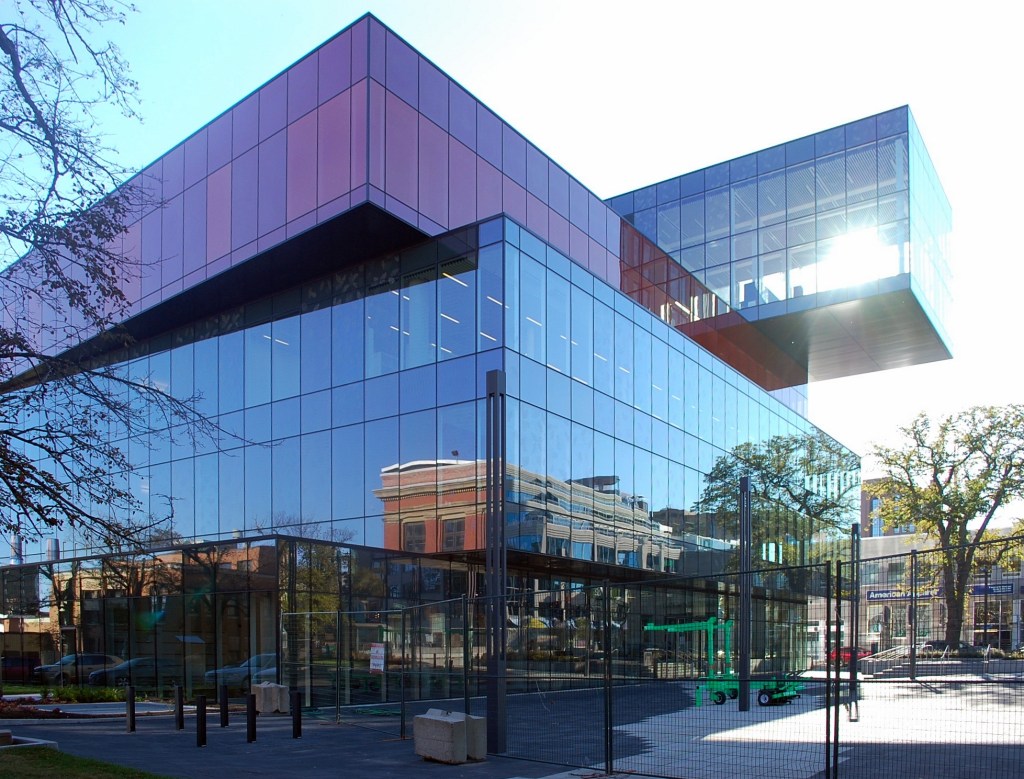I used to think of myself as a free speech absolutist. I still do… mostly. But I’m now a little less absolute in my absolutism. Let’s take a look at two recent close-to-home cases.

I used to think of myself as a free speech absolutist. I still do… mostly. But I’m now a little less absolute in my absolutism. The hard edges of my belief that every form of speech is OK — save perhaps yelling “Fire” in a crowded theatre, or directly threatening to murder your neighbour — have been sanded down by too many years of twenty-first-century reality.
How do you defend, on principle, consequence-free social media super-spreaders of mis- and disinformation, or/and the vile outpourings of misanthropic trolls with digital megaphones?
I have also come — slowly — to understand that free speech absolutism is easiest for people like me who come from a place of privilege. My “free speech” often gets defined differently by its victims.
All of that said, I still believe there are almost always better ways to deal with most speech we disagree with, or even see as harmful, than to simply shut it down. We need to promote conversation rather than censorship.
Consider two recent close-to-home incidents.
On May 28, 2021, Halifax Pride released a statement:
Halifax Pride has decided to end our partnership with the Halifax Public Library, including events planned for the 2021 [Pride] festival, and will refrain from booking library spaces until this issue is addressed with some combination of internal review, policy change, and training.
The issue at issue is the Halifax Public Library’s decision “to not censor” a controversial book called Irreversible Damage: The Transgender Craze Seducing Our Daughters by Abigail Shrier. Pride, among other petitioners, had requested the library pull the book from its shelves. Explained the library in its own statement:
Free access to information and ideas is a democratic right of every citizen. Public libraries ensure this right by providing the public with opportunities to participate fully in a changing society through access to a wide range of humanity’s thoughts, ideas, information and expressions of the creative imagination.
Let’s talk first about the book — and its author. Shrier, a freelance journalist whose work appears in conservative media outlets like The Wall Street Journal and The Federalist and whose book was published by an ideologically conservative publishing house, is a frequent right-wing commentator on gender issues.
Her book’s “central (and false) premise,” as Dr. Jack Turban, an adolescent psychiatry fellow at Stanford University School of Medicine who specializes in child and adolescent mental health, put it…
… is that there are massive numbers of transgender youth who are not truly transgender, but rather just confused, and that they are all being rushed into gender-affirming medical interventions and surgeries that they will later regret. As a physician and a researcher who has dedicated my career to taking care of and understanding transgender youth, I recognized the book as bizarre and full of misinformation. I assumed it wouldn’t gain much traction. I was wrong.
He was. After “it snowballed to fame” on Twitter, The Economist named Irreversible Damages a book of the year for 2020. As did The Times of London. As did The Christian Post.
Attempts to have mass-market online booksellers like Target and Amazon remove the book failed, and controversies over those efforts only added to the book’s popularity.
I did a quick scan of Amazon.ca Saturday and found Irreversible Damages — which boasts nearly 2,800 ratings and a 4.5-star ranking — listed as the top-selling book in “Conservatism & Liberalism,” #8 in “Transgenderism” and #23 in “Political Doctrines.”
How do you understand what Turban describes as this “mass consumption of misinformation” about transgender youth?
And, as important, how do you combat it?
The book is out there, so banning it from libraries will simply drive many readers to sellers with no interest in conversation while creating a barrier for would-be readers with limited means whose budgets do not include books.
While Shrier’s incendiary arguments received their initial oxygen in the conservative blogosphere, my guess is that some honestly raised questions and genuine confusion have also fanned those flames.
Are an increasing proportion of young people now publicly identifying as trans? If so, is it because society is now more open to allowing people to express their gender identities? Or are some young people, who are exploring gender possibilities, being shunted into “irreversible” decisions too quickly? Or both? Or…? And how can parents — and society — support young people to make their own right decisions?
Those are all reasonable questions.
Shrier, with her dependence on ideology and junk science, offers no useful answers.
Writing in Psychology Today, Turban, however, helpfully included a section on “some things you should know about Irreversible Damage,” which dissected Shrier’s “false” use of statistics and eviscerated her shaky premises with facts, and then helpfully included specific references to “peer-reviewed scientific research that shows the benefits of gender-affirming medical care for transgender adolescents.”
The best scientific evidence… The lived experience of those most affected…
Those, it seems to me, are still better ways to combat what Pride rightly calls “unsupported medical claims and the transphobic assertion that trans identities are a choice.”
You won’t find that kind of information on Amazon where its algorithmic links from “customers who read this book also read…” feature more books that make similar arguments as Shrier’s.
You will, on the other hand, find a direct link from the Halifax Public Library’s listing for Irreversible Damage to a collection of Online Resources entitled, “Supporting Trans Youth: Resources for Parents” that includes a collection of 18 different books such as Raising the Transgender Child, Transgender Children and Youth: Cultivating Pride and Joy and The Conscious Parent’s Guide to Gender Identify.
Those resources do what libraries do best: create public spaces where we can have honest, respectful conversations.
If even one person among the 120 currently waiting to borrow one of the library’s two copies of Irreversible Damages is encouraged to check out some of those other books, Halifax Pride’s important “commitment to protecting vulnerable members of the 2SLGBTQ+ community” will have been more effectively met than by banning Shrier’s screed and driving the curious and the concerned to the Amazons of this world where there are no similar reality-check guardrails.
(My colleague, Philip Moscovitch, has a very thoughtful feature on this issue in The Examiner.)
***
My second close-to-home incident involves the provincial government’s department of education and early childhood development. In early April, the department contacted Rebecca Thomas, the award-winning Mi’kmaw poet, Halifax’s former poet laureate, and the author of I’m Finding My Talk, a Globe and Mail best children’s book for 2019, as well as I Place You into the Fire, her first adult poetry collection, which was a CBC Canadian Poetry pick the following year.
The department informed Thomas it was interested in including Into the Fire on a reading list of books for students aged 12 – 15.
But…
The department first wanted Thomas to agree to remove six poems from the book.
Why?
Well, as of last week, Thomas hasn’t been able to get an answer to that question, or even a meeting to discuss it.
She guesses, she told the CBC last week, the issue may be that some of the poems include the “F-word” — a word it is almost certain every 12 – 15-year-old Nova Scotian school student already knows and can use in many different sentences.
But Thomas suspects — more significantly — that the department may also have been uncomfortable with her frequent use of the term, “Indian,” which is no longer considered “appropriate” language in polite company.
Thomas, whose own father was a residential school survivor, argues it is for just that reason the word must stay. “I think there’s a really good conversation around generational use, the impacts of that word, reclamation around that word and rejection of that word… I’m disappointed because I think that this is an excellent opportunity to really teach some folks about what it’s like being the kid of a residential school survivor, from a first voice.”
A really good conversation… A teaching and learning opportunity…
Opportunities we only have if we are willing to engage. If we are willing to confront not by shutting down but by opening up.
A version of this column originally appeared in the Halifax Examiner.
To read the latest column, please subscribe.




 STEPHEN KIMBER, a Professor of Journalism at the University of King's College in Halifax and co-founder of its MFA in Creative Nonfiction Program, is an award-winning writer, editor and broadcaster. He is the author of two novels and eight non-fiction books. Buy his books
STEPHEN KIMBER, a Professor of Journalism at the University of King's College in Halifax and co-founder of its MFA in Creative Nonfiction Program, is an award-winning writer, editor and broadcaster. He is the author of two novels and eight non-fiction books. Buy his books
I have written a story about a relative called Cripple,Cripple, if it was ever to be published, I would not change the title for any amount of money, that is what kids were called, even by their own siblings,many polio victims, in my sister’s case it was a breech birth, and any change to the title would be ludicrous. Want to hear something really ridiculous from The Oxford dictionary, on my way to find the proper spelling for ludicrous, I came across the word lubricious, the definition is dirty & lewd, in other words it is lewd for a woman to be slippery or moist, guess God got it wrong.